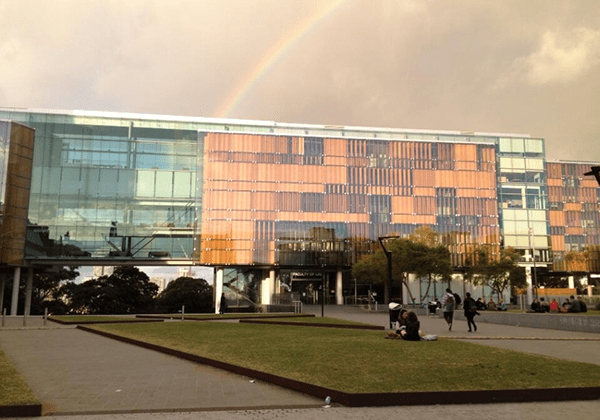The University of Sydney Law School board voted to formally support the Uluru Statement from the Heart on Friday, following widespread lobbying from the Sydney University Law Society (SULS) and Sydney Law School staff members.
This development follows submissions from leading legal academics at the University of New South Wales and the Australian National University, who have increasingly encouraged the constitutional enshrinement of a First Nations ‘Voice’ in Parliament in recent months.
The Uluru Statement from the Heart, which won the Sydney Peace Prize 2021 earlier this week, suggested that a First Nations ‘Voice’ be enshrined into Parliament and that a ‘Makarrata’ process be introduced in order to interrogate treaty-making and truth-telling. The Statement was published in May 2017 in order to “empower [First Nations] people and [allow them to] take a rightful place in [First Nations] country.” However, to date, neither recommendation has been implemented nor put to a referendum.
In October 2017, former Prime Minister Malcolm Turnbull rejected calls to put these recommendations to a vote, saying that they were neither “desirable or capable of winning acceptance at referendum.” Scott Morrison has also suggested that there was “still no clear consensus proposal at this stage.”
By contrast, the Law School has resolved to wholeheartedly supported the Statement and to “call on the Commonwealth government to endorse the Uluru Statement from the Heart, to take action to enshrine a First Nations Voice to Parliament in the Australian Constitution, and to establish a Makarrata Commission, as Australia’s First Nations People have requested.”
Sydney Law School Statement sponsors Associate Professor Jacqui Mowbray and Dr Emily Hammond said “We are delighted the School has adopted this resolution. The Statement of the Heart is the first step to rethinking our legal order, and the place of First Nations peoples within it.”
This represents a shift by the Law School towards acknowledging and publicly commenting on broader social issues under the Dean of Sydney Law School, Professor Simon Bronitt, who commenced in July 2019. In October 2020, Bronitt released a statement condemning ‘hard’ policing following multiple incidents involving altercations between University of Sydney students and staff with members of the New South Wales Police Force last year.
SULS First Nations Officer Nathan Allen welcomed the endorsement by the Law School but suggested that more needed to be done to adequately address intergenerational inequality.
“Whilst this is a positive symbol of commitment to reconciliation in Australia, we need to be doing more,” he said.
Allen called on Sydney Law School academics to continue working towards achieving a form of more substantive redress in the future.
“What we need now is to get the brightest constitutional minds in the Law School to come together and work out what the constitutional provision might actually look like,” he said. “By coming up with a workable and acceptable model of what the change to the constitution might actually be and putting that into the public discourse for discussion, we might actually be able to agitate for real change and reignite the process of enshrining a ‘Voice’ into Parliament. As a faculty, we should be trying to work out what we should be doing, not just what we are doing.”
He also called on the University of Sydney to start taking more practical measures to promote the growth of new First Nations leaders and lecturers.
“In order to close the gap, we need to do things like give more First Nations scholarships, especially in the HDR sector to Masters and PhD students,” he said.
SULS previously called for students and staff to sign an endorsement of the Interim ‘Voice’ report, stating that “a constitutionally enshrined Voice is consistent with our constitutional traditions, and a necessary response to the Uluru Statement from the Heart.”





